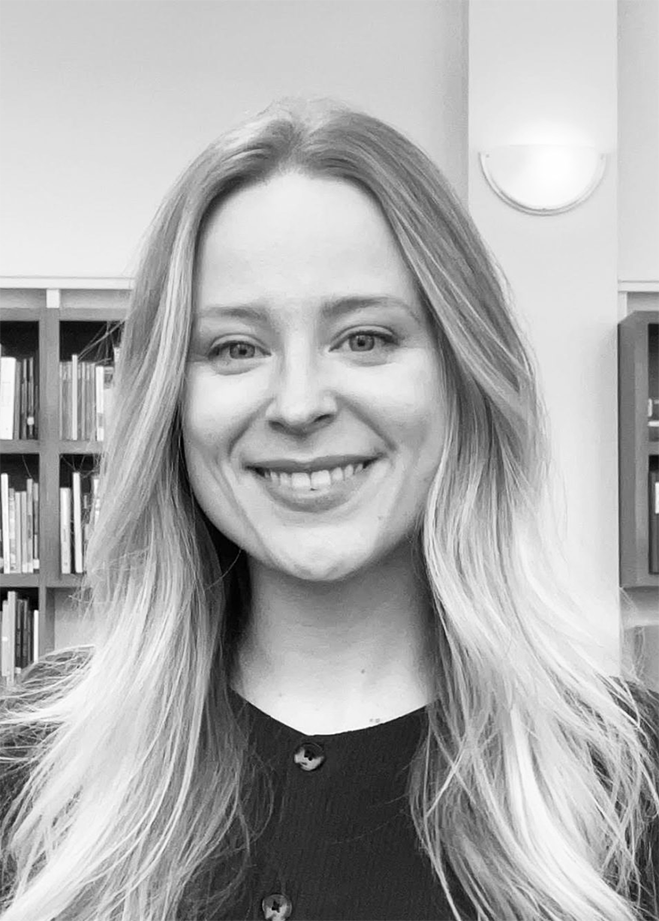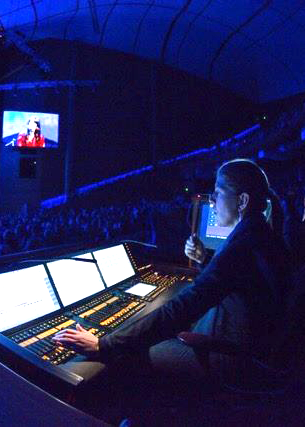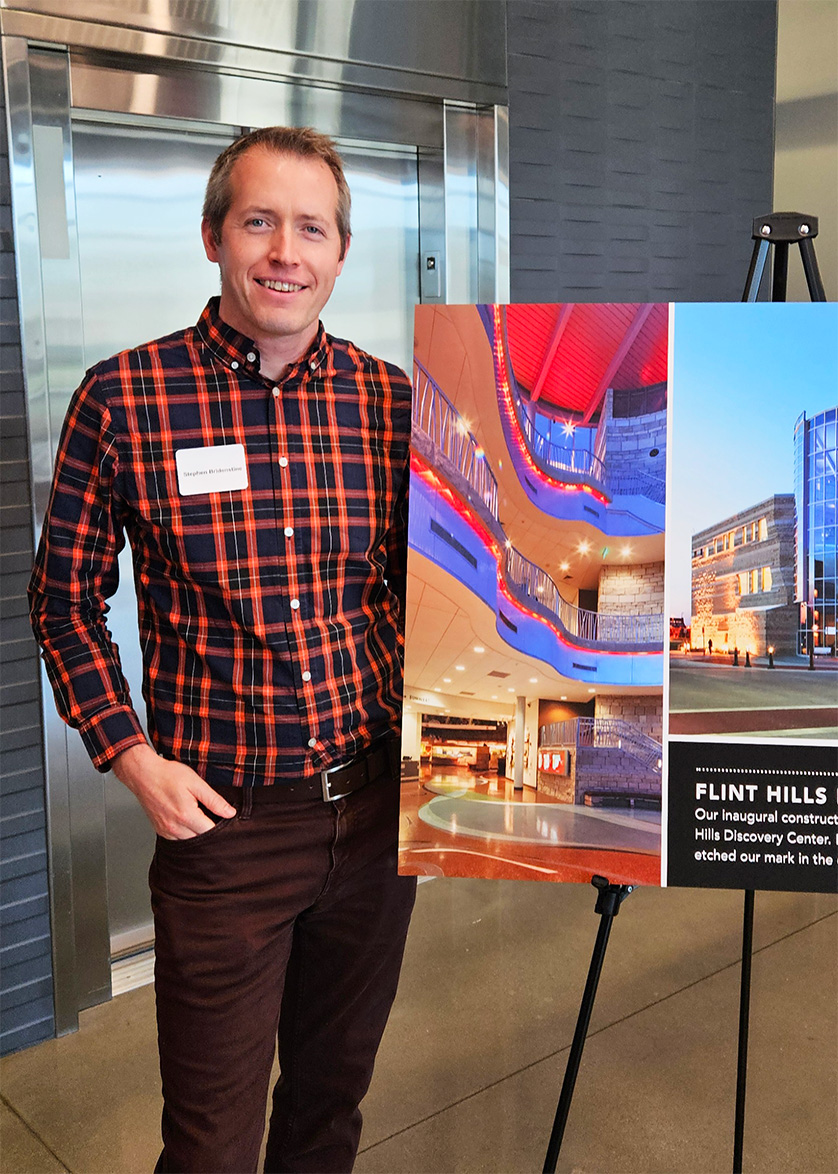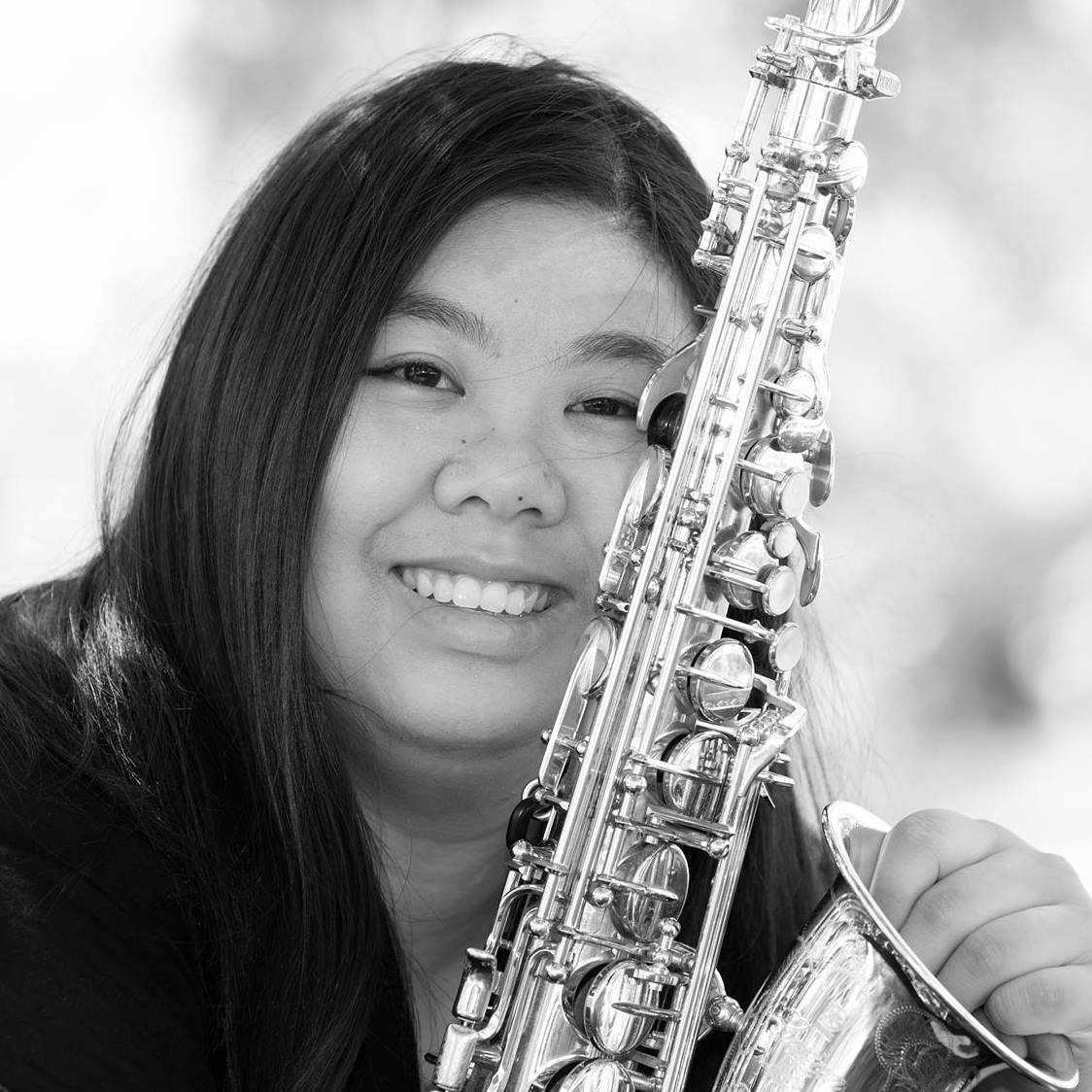Alan Brodie
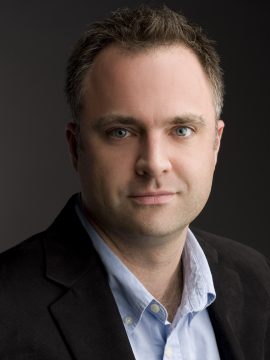
Since graduating from UBC’s BFA in theatre studies program in 1989, Alan Brodie has worked in lighting design and stage direction for regional theatre, opera and dance companies from Victoria to Halifax, as well as countless small and independent producers. On the international stage, his work has been seen in San Francisco, Los Angeles, Hartford, London, Adelaide, Wellington, Bergen and The Hague. He has served on faculty at UBC, the Banff Centre, Langara College (Studio 58) and the National Theatre School of Canada.
Brodie has received 10 Jessie Richardson awards, a Sterling Award, a Betty Mitchell Award, an Ovation Award, a Victoria Critic’s Choice Spotlight Award and a Bay Area Theatre Critics’ Circle Award. In 2012 he was shortlisted for the Siminovitch Prize in Theatre, Canada’s most prestigious theatre award.
Why did you choose your program at UBC and what did you enjoy most about it?
I was a young 17 years old when I started at UBC, and I had the opportunity to live with relatives for the first two years of school. Having grown up in a small northern town, Vancouver seemed big and a bit scary, but residing with family made the experience of adjusting to life in the city a little easier. In the summer after grade 12 I had attended the BC Festival of Arts on the UBC campus, and I remember poking my nose up to the window of the Frederic Wood Theatre lobby and thinking how good it would be to go to school there. I remember seeing the ads for the upcoming Summer Stock theatre season. I hadn’t actually applied to go anywhere else, so I guess I was lucky that I was admitted.
I enjoyed how small the class of my specialization was. There were only five of us in my intake of the BFA in theatre design & production, and we had all our core classes together, we worked together on productions, and we hung out together. The chance to grow close to a small group of like-minded students was very special. While in the program I worked in some capacity on every mainstage production, in addition to numerous studio and classroom projects. We were totally immersed in theatre production for three years.
I was particularly interested in lighting design, and as the only aspiring lighting designer in my class, I was afforded plenty of opportunities to design, as well as assist other designers and work as a lighting technician. The total immersion and the amount of opportunity for me to practice my chosen field as a student was a tremendous benefit to my training and I have no doubt played a part in my future success in the business.
What were some of your most meaningful experiences at UBC?
One year my class was responsible for all of the technical aspects of a UBC production of “Equus”. The production took place in the Dorothy Somerset Studio, and then later transferred to North Vancouver for performances in Anne Macdonald Hall at Presentation House. Our small cohort designed, built, costumed, lit and stage managed the production.
Another tremendous experience came in the summer of 1987 when I joined the Stage Campus company for a season of 4 plays in the Frederic Wood Theatre. Over the course of the summer I designed a set, costumes, lighting and stage managed a production. The shows were directed by local directors and a recent MFA grad, and this introduced me to my first group of outside professional practitioners. Sadly, I don’t think that Summer Stock is an opportunity for today’s UBC theatre students.
In my final year of the program my studies culminated with the lighting design for “Zastrozzi”, a stylish play by Canadian playwright George F. Walker. Thanks to the advocacy of then-new faculty member Robert Gardiner, I was one of the first undergraduates to design a production that was part of the main season on the Frederic Wood Theatre stage. This opportunity gave me the most real-world experience of my degree, and helped prepare me for a career of designing on stages of just that size.
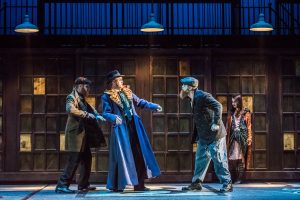


Alan Brodie received a Dora Mavor Moore Award for Outstanding Lighting Design for “The Overcoat: a Musical Tailoring” – a new opera co-produced by Canadian Stage, Tapestry Opera and Vancouver Opera. Photo credit: Dahlia Katz.
What choices did you make at UBC that contributed to your career success / journey?
I knew that taking advantage of the wide range of liberal arts studies that were available to me while at UBC would serve me well in my career. Classes in Fine Arts, Classical Studies, English, French and Anthropology, in addition to a wide range of theatre department electives cultivated my curiosity and life-long interest in research and learning about new subjects. As a designer, research is a crucial dimension to understanding and designing plays, musicals, ballets and operas set not only in past periods but in the present day as well; only by understanding the past can we attempt to truly grasp our present.
The other aspect of my time at UBC, and over this I have mixed feelings, was the sheer degree of total immersion in theatre production. This served me extremely well as a “theatre” student (and future professional) but gave mixed results as a “university” student – I didn’t learn the greatest study habits and didn’t graduate with the highest of GPAs. However, in the profession no one is really looking at your university marks, so I think that in the end my focus served me well. It was much later, as a graduate student, that I developed better academic skills.
What was your first job after graduation and what other jobs did you have before your current position?
My first production after graduation was an on-going series of dinner theatre shows produced at the Soft Rock Café on West 4th Avenue. Two nights a week my friend and fellow theatre at UBC alumnus Randall Plitt and I would transform the then-popular night spot into a dinner theatre venue. I designed the set and lights, together we built and painted the set, and Randall mixed the sound. We rented temporary lighting equipment and once a week we would prepare the venue for musical theatre revues. This job went on for the better part of a year at least, and many years later I would reunite with the producer and director of those productions, Max Reimer, when he took over the artistic directorship of Vancouver Playhouse.
In the course of my career I’ve designed set and / or lighting for plays, musical theatre, opera and dance productions. For 29 years each season has featured a stimulating variety of productions, in many different cities, for a wide range of companies. That has been simultaneously one of the most exciting things and one of the most nerve wracking things about being self-employed. There are no guarantees of anything from month to month or year to year. Fortunately, after this many years, I do have a lot of companies that will hire me, and many collaborators that still want to work with me.
Is your current career path as you originally intended? What challenges did you face in launching your career?
I always wanted to be a lighting designer. I discovered the field while in high school and have never really deviated from that path. However, I realized pretty soon after completing my studies at UBC that I would be well served if I could design in another area too, and soon after added set design to my repertoire. Over the years I have designed set and lights for three dozen productions but have always self-identified as a lighting designer first, and by now have created the lighting for over 300 professional theatre productions.
The biggest career challenge faced by any young theatre designer has to do with patience. In general, there is not a lot of room for new designers to enter the industry. An aspiring designer has to gradually eke their way into the business, taking any opportunity that comes along, while slowly building a reputation and a stable of directors and producers that are familiar with your work and willing to hire you. It took ten years of working in the trenches, and accepting whatever theatre work I could, before I was earning any kind of a reliable income. Sometimes I was designing, but frequently I was assisting other more established designers, and occasionally I worked in peripheral areas, such as those of stage technician, set carpenter, stage electrician, and the like.
If the young designer is looking for quick success, notoriety or stability in the theatre business, you’re bound to be disappointed. However, with patience, determination and some good fortune, an exciting and fulfilling career awaits you.
What do you like about your current job and what do you find challenging? How does it relate to your degree?
The most exciting development in my theatre life is that recently I began directing for the stage. I’ve always viewed directing and designing as integrally related to each other anyway, so when I decided I wanted to pursue an MFA, and started thinking about what to study (because doing an MFA in lighting design at this stage didn’t make sense to me), directing hit me as the logical choice. Since completing masters studies at UVic in 2016, I’ve started to build a new career as a stage director. In the meantime, I continue to pay my mortgage by working as a designer. Without a doubt, my practice as a designer has been transformed through my studies and experiences in directing, and I have the added bonus of having discovered a new pursuit which I am as passionate about now as I was about lighting design at the beginning of my career.
From your experience, what has been the value of having an Arts degree?
My arts degree has provided me with a number of valuable assets as a theatre designer: curiosity, the ability to think critically, to see the world in a wider context, to respond intellectually and emotionally to art, to value collaboration.
Are there any other achievements or activities you would like to highlight?
I have been incredibly fortunate in my career. I’ve worked on Broadway musicals like “Sunset Blvd.” and “The Phantom of the Opera”; my lighting for “The Overcoat” travelled across Canada and around the world to major theatre festivals; I’ve created lighting for ballet companies in Canada, Europe and America, I’ve designed for almost every English language regional theatre in Canada and a number of important theatres in America; I’ve been honored with awards in Victoria, Vancouver, Calgary, Edmonton, Toronto and San Francisco; I have worked with some of the greatest directors and choreographers and collaborated with many truly gifted designers; I have pursued work that continues to inspire and challenge me, reflecting the world around us, providing beauty and light in moments of darkness; and most recently I’ve started telling my own stories as a stage director. Who can ask for more than that?
What advice would you give to students and alumni interested in breaking into your industry?
If you can, identify specifically what it is you want to get out of your program, and then set out strategically to make it happen. In an undergraduate program there tend to be a lot of students vying for the same small set of prime opportunities: a student that knows what they want can derive more beneficial outcomes in that environment.
Work hard… be patient… be true to yourself… identify who or what you want to become and never lose sight of that goal. Be patient… Keep a firm grasp of your passion. Recognize that your learning doesn’t end with the completion of your bachelor’s degree; in fact, in many respects it is only a gateway to the next level of learning: apprenticeship and the school of hard knocks. Identify whose job you want in the profession and come up with a plan for how to get there. Did I mention be patient?
What advice would you give your graduating self?
My advice to myself while I was still in school?… Be sure to graduate with well developed and marketable skills in more than one design discipline. I was able to fake it after the fact, but would have benefitted from being a stronger multi-discipline designer from the outset.
Also, as soon as possible, cultivate more industry contacts away from campus. UBC can be a bit isolating and I certainly didn’t graduate with a very strong sense of the Vancouver or Canadian professional theatre scene. I should have seen more work and made more contacts outside of UBC while a student and in the years immediately following.
Alan Brodie



Since graduating from UBC’s BFA in theatre studies program in 1989, Alan Brodie has worked in lighting design and stage direction for regional theatre, opera and dance companies from Victoria to Halifax, as well as countless small and independent producers. On the international stage, his work has been seen in San Francisco, Los Angeles, Hartford, London, Adelaide, Wellington, Bergen and The Hague. He has served on faculty at UBC, the Banff Centre, Langara College (Studio 58) and the National Theatre School of Canada.
Brodie has received 10 Jessie Richardson awards, a Sterling Award, a Betty Mitchell Award, an Ovation Award, a Victoria Critic’s Choice Spotlight Award and a Bay Area Theatre Critics’ Circle Award. In 2012 he was shortlisted for the Siminovitch Prize in Theatre, Canada’s most prestigious theatre award.
Why did you choose your program at UBC and what did you enjoy most about it?
I was a young 17 years old when I started at UBC, and I had the opportunity to live with relatives for the first two years of school. Having grown up in a small northern town, Vancouver seemed big and a bit scary, but residing with family made the experience of adjusting to life in the city a little easier. In the summer after grade 12 I had attended the BC Festival of Arts on the UBC campus, and I remember poking my nose up to the window of the Frederic Wood Theatre lobby and thinking how good it would be to go to school there. I remember seeing the ads for the upcoming Summer Stock theatre season. I hadn’t actually applied to go anywhere else, so I guess I was lucky that I was admitted.
I enjoyed how small the class of my specialization was. There were only five of us in my intake of the BFA in theatre design & production, and we had all our core classes together, we worked together on productions, and we hung out together. The chance to grow close to a small group of like-minded students was very special. While in the program I worked in some capacity on every mainstage production, in addition to numerous studio and classroom projects. We were totally immersed in theatre production for three years.
I was particularly interested in lighting design, and as the only aspiring lighting designer in my class, I was afforded plenty of opportunities to design, as well as assist other designers and work as a lighting technician. The total immersion and the amount of opportunity for me to practice my chosen field as a student was a tremendous benefit to my training and I have no doubt played a part in my future success in the business.
What were some of your most meaningful experiences at UBC?
One year my class was responsible for all of the technical aspects of a UBC production of “Equus”. The production took place in the Dorothy Somerset Studio, and then later transferred to North Vancouver for performances in Anne Macdonald Hall at Presentation House. Our small cohort designed, built, costumed, lit and stage managed the production.
Another tremendous experience came in the summer of 1987 when I joined the Stage Campus company for a season of 4 plays in the Frederic Wood Theatre. Over the course of the summer I designed a set, costumes, lighting and stage managed a production. The shows were directed by local directors and a recent MFA grad, and this introduced me to my first group of outside professional practitioners. Sadly, I don’t think that Summer Stock is an opportunity for today’s UBC theatre students.
In my final year of the program my studies culminated with the lighting design for “Zastrozzi”, a stylish play by Canadian playwright George F. Walker. Thanks to the advocacy of then-new faculty member Robert Gardiner, I was one of the first undergraduates to design a production that was part of the main season on the Frederic Wood Theatre stage. This opportunity gave me the most real-world experience of my degree, and helped prepare me for a career of designing on stages of just that size.



Alan Brodie received a Dora Mavor Moore Award for Outstanding Lighting Design for “The Overcoat: a Musical Tailoring” – a new opera co-produced by Canadian Stage, Tapestry Opera and Vancouver Opera. Photo credit: Dahlia Katz.
What choices did you make at UBC that contributed to your career success / journey?
I knew that taking advantage of the wide range of liberal arts studies that were available to me while at UBC would serve me well in my career. Classes in Fine Arts, Classical Studies, English, French and Anthropology, in addition to a wide range of theatre department electives cultivated my curiosity and life-long interest in research and learning about new subjects. As a designer, research is a crucial dimension to understanding and designing plays, musicals, ballets and operas set not only in past periods but in the present day as well; only by understanding the past can we attempt to truly grasp our present.
The other aspect of my time at UBC, and over this I have mixed feelings, was the sheer degree of total immersion in theatre production. This served me extremely well as a “theatre” student (and future professional) but gave mixed results as a “university” student – I didn’t learn the greatest study habits and didn’t graduate with the highest of GPAs. However, in the profession no one is really looking at your university marks, so I think that in the end my focus served me well. It was much later, as a graduate student, that I developed better academic skills.
What was your first job after graduation and what other jobs did you have before your current position?
My first production after graduation was an on-going series of dinner theatre shows produced at the Soft Rock Café on West 4th Avenue. Two nights a week my friend and fellow theatre at UBC alumnus Randall Plitt and I would transform the then-popular night spot into a dinner theatre venue. I designed the set and lights, together we built and painted the set, and Randall mixed the sound. We rented temporary lighting equipment and once a week we would prepare the venue for musical theatre revues. This job went on for the better part of a year at least, and many years later I would reunite with the producer and director of those productions, Max Reimer, when he took over the artistic directorship of Vancouver Playhouse.
In the course of my career I’ve designed set and / or lighting for plays, musical theatre, opera and dance productions. For 29 years each season has featured a stimulating variety of productions, in many different cities, for a wide range of companies. That has been simultaneously one of the most exciting things and one of the most nerve wracking things about being self-employed. There are no guarantees of anything from month to month or year to year. Fortunately, after this many years, I do have a lot of companies that will hire me, and many collaborators that still want to work with me.
Is your current career path as you originally intended? What challenges did you face in launching your career?
I always wanted to be a lighting designer. I discovered the field while in high school and have never really deviated from that path. However, I realized pretty soon after completing my studies at UBC that I would be well served if I could design in another area too, and soon after added set design to my repertoire. Over the years I have designed set and lights for three dozen productions but have always self-identified as a lighting designer first, and by now have created the lighting for over 300 professional theatre productions.
The biggest career challenge faced by any young theatre designer has to do with patience. In general, there is not a lot of room for new designers to enter the industry. An aspiring designer has to gradually eke their way into the business, taking any opportunity that comes along, while slowly building a reputation and a stable of directors and producers that are familiar with your work and willing to hire you. It took ten years of working in the trenches, and accepting whatever theatre work I could, before I was earning any kind of a reliable income. Sometimes I was designing, but frequently I was assisting other more established designers, and occasionally I worked in peripheral areas, such as those of stage technician, set carpenter, stage electrician, and the like.
If the young designer is looking for quick success, notoriety or stability in the theatre business, you’re bound to be disappointed. However, with patience, determination and some good fortune, an exciting and fulfilling career awaits you.
What do you like about your current job and what do you find challenging? How does it relate to your degree?
The most exciting development in my theatre life is that recently I began directing for the stage. I’ve always viewed directing and designing as integrally related to each other anyway, so when I decided I wanted to pursue an MFA, and started thinking about what to study (because doing an MFA in lighting design at this stage didn’t make sense to me), directing hit me as the logical choice. Since completing masters studies at UVic in 2016, I’ve started to build a new career as a stage director. In the meantime, I continue to pay my mortgage by working as a designer. Without a doubt, my practice as a designer has been transformed through my studies and experiences in directing, and I have the added bonus of having discovered a new pursuit which I am as passionate about now as I was about lighting design at the beginning of my career.
From your experience, what has been the value of having an Arts degree?
My arts degree has provided me with a number of valuable assets as a theatre designer: curiosity, the ability to think critically, to see the world in a wider context, to respond intellectually and emotionally to art, to value collaboration.
Are there any other achievements or activities you would like to highlight?
I have been incredibly fortunate in my career. I’ve worked on Broadway musicals like “Sunset Blvd.” and “The Phantom of the Opera”; my lighting for “The Overcoat” travelled across Canada and around the world to major theatre festivals; I’ve created lighting for ballet companies in Canada, Europe and America, I’ve designed for almost every English language regional theatre in Canada and a number of important theatres in America; I’ve been honored with awards in Victoria, Vancouver, Calgary, Edmonton, Toronto and San Francisco; I have worked with some of the greatest directors and choreographers and collaborated with many truly gifted designers; I have pursued work that continues to inspire and challenge me, reflecting the world around us, providing beauty and light in moments of darkness; and most recently I’ve started telling my own stories as a stage director. Who can ask for more than that?
What advice would you give to students and alumni interested in breaking into your industry?
If you can, identify specifically what it is you want to get out of your program, and then set out strategically to make it happen. In an undergraduate program there tend to be a lot of students vying for the same small set of prime opportunities: a student that knows what they want can derive more beneficial outcomes in that environment.
Work hard… be patient… be true to yourself… identify who or what you want to become and never lose sight of that goal. Be patient… Keep a firm grasp of your passion. Recognize that your learning doesn’t end with the completion of your bachelor’s degree; in fact, in many respects it is only a gateway to the next level of learning: apprenticeship and the school of hard knocks. Identify whose job you want in the profession and come up with a plan for how to get there. Did I mention be patient?
What advice would you give your graduating self?
My advice to myself while I was still in school?… Be sure to graduate with well developed and marketable skills in more than one design discipline. I was able to fake it after the fact, but would have benefitted from being a stronger multi-discipline designer from the outset.
Also, as soon as possible, cultivate more industry contacts away from campus. UBC can be a bit isolating and I certainly didn’t graduate with a very strong sense of the Vancouver or Canadian professional theatre scene. I should have seen more work and made more contacts outside of UBC while a student and in the years immediately following.
